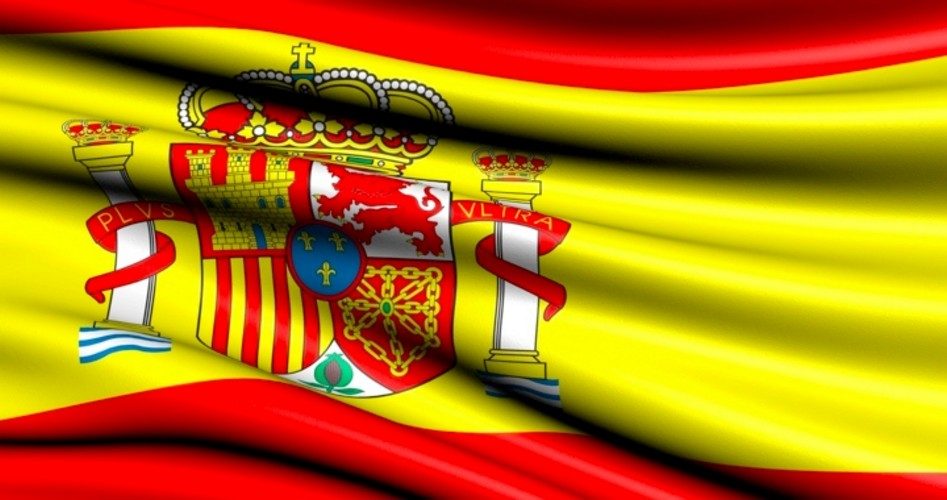
Spain has long battled Basque separatism. That separatism may become more powerful as the Spanish economy melts.
The Basque language is not a Romantic language, such as Spanish, Portuguese, or Italian; it is not a Germanic language such as Dutch, German, or Danish. Basque is part of a completely different family of languages, much more like Welsh or Gaelic than Spanish. The culture of the Basque region is more like Brittany or Scotland than Castile. The desire of the Basque to have their own nation has been a thorn in the side of Madrid for a long time.
As the Spanish unemployment rate rises to the highest in Europe and the likelihood of a Spanish financial collapse seems to grow each day, Basque separatism has gained new energy. The Basque region is not the only part of Spain that may want independence. The Catalan region, long also a hotbed of separatism, is also agitating for something close to nationhood.
Madrid notes that there is a lot more government money flowing into Basque Spain than the national government receives back in tax revenue. What is true in Spain is true in other good-sized nations. The Canadians of Quebec contribute less in taxes to Ottawa than the Francophone province returns in revenues. Scotland and Wales also get more from London than these realms give to London in taxes.
In Scotland, a national referendum is set for 2014, and if the Scots vote to depart from the United Kingdom, it is hard to see just what could happen to keep them in. The shakiness in Europe of centralized government is providing a rationale for those movements that seek to decentralize government through the creations of new nations.
Estonians don’t want to be part of a new Soviet Union, and Croatians don’t want to become part of a new Yugoslavia, just as Slovaks are not pleading with the Czech Republic for reunification. In fact, in modern European history there has been no case of popular yearning for one nationality to be readmitted to a larger nation.
The Austrians, who were Germans, did have much sympathy in the 1920s to become part of Germany, German-speaking peoples who were placed in other nations after the Treaty of Versailles also resented this unrequested transfer of nationhood. But Danes and Dutchmen never asked to join Germany, and the German-speaking cantons of Switzerland were among those most hostile to some sort of Anschluss with (annexation by) Germany.
Interestingly, South Tyrol, the part of Italy that’s closest to Austria and historically been very close to the Austrians and the Swiss, has reacted to the looming meltdown of the Italian economy by demanding separation from the rest of Italy. The relatively thrifty and hard-working Tyrolese feel like the rest of Italy is taking advantage of them. Ulli Mair, leader of The Libertarians, a South Tyrol political party, asks: “Why should we be the one to rescue Italy? After all, we didn’t make this mess.” Mair said that a constitution for a Free State of Tyrol could be published this year.
Belgium, the nation in which the capital of the European Union resides, is itself a bifurcated nation of Fleming and Walloon, who do not wish to remain together in a single state. In fact, “Belgium” was cobbled together in the first place in the hope that it would provide a buffer state between France, Germany, and Britain.
Of course, it did not work out that way. Instead, in the First World War Germany trod through this hybrid nation, insuring that the conflict was even deeper and broader than it had to be. In the Second World War, conflict between Belgium’s Flemish and Walloon nationalities actually manifested itself in Flemish and Walloon units shooting at each other while the Germans attacked. These days the nationality conflict has led to the longest impasse in forming a government in the modern history of parliamentary democracies. The Flemish, like the Tyrolese in South Tyrol, feel that they are a thriftier and more hard-working people than those who share their “country” with them. Much of the reason for the parliamentary standout in Belgium was because one Flemish party wants Belgium to split in half.
When a nationalistic minority resides in a larger state they don’t want to be part of, the central government may exercise oppressive police powers to keep the state together — such as was the case in Yugoslavia. Or the central government may try to placate whole peoples through its social-welfare policies. But when Ottawa and Madrid provide unhappy Basques or Quebecers with an inordinately large slice of the fiscal pie, the cost is not paid by politicians but by taxpayers who do not want to see their wealth confiscated and redistributed.
And what happens when a socialistic nation such as Spain is on the verge of economic collapse?
Because of the desire of nationalistic groups to be self-governing or autonomous, it is hard to imagine how the European Union could continue its trajectory of absorbing and centralizing the political powers of the EU member nations without resorting to police-state oppression resulting in the loss of freedom. In fact, for freedom to flourish, the trend would need to be in the opposite direction. That would mean abolishing the EU, of course, but it could also mean more self-governing entities in areas where peoples never wanted to be cobbled together under a distant central government to begin with.
Photo: Spanish flag


